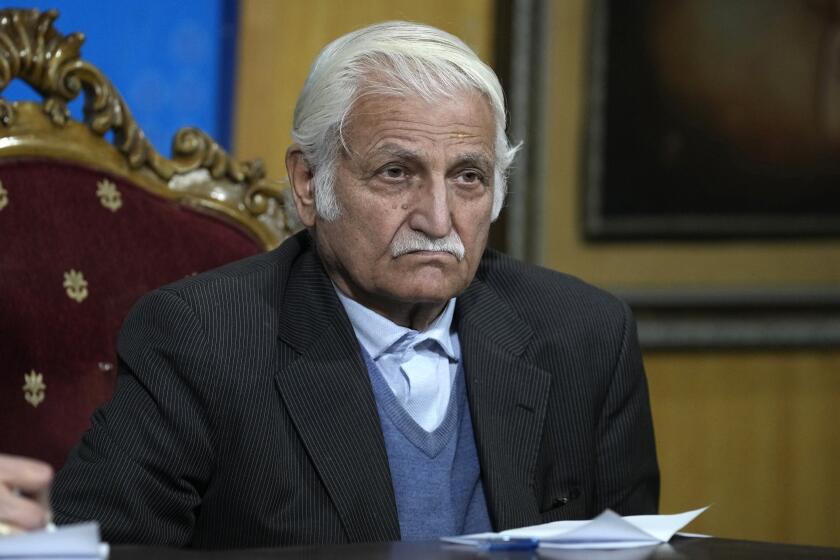Avoid these common mistakes in conducting workplace investigations

At a recent Zoom program I attended sponsored by the Harvard Law School Association of Orange County, attorney Tina Rad of Wagener Law addressed the ten most common mistakes made in workplace investigations. Her firm posted a three-article series on common investigation pitfalls on its website.
Rad’s practice consists exclusively of conducting impartial investigations; she personally has conducted over 100 of them. Below are Rad’s edited responses to my emailed questions.
You practiced employment law as an advocate for years before moving full-time to workplace investigations. Why did you switch?
As a litigator, I found I loved only the initial fact-finding stage of my cases, when I could interview witnesses and gather documents to learn the human story behind the legal dispute. My passion for finding out “what really happened” far outweighed my interest in fighting about the issues. Winning in litigation came at such great cost: not just the legal fees, but the human relationships and emotions left decimated in litigation’s wake. Neutral fact-finding seemed a better path to justice.
Let’s focus on five common mistakes you’ve identified in workplace investigations. Mistake number 1 is the failure to investigate altogether. Why might an employer mistakenly fail to investigate a workplace complaint? What are the consequences of failing to investigate?
Complaints commonly slip through the cracks in situations where employees do not use legal buzzwords, the complaint does not come through a “formal” channel like HR, the complaint is made anonymously or confidentially, or the complaint is made outside of work. An employer may face independent liability just for failing to investigate a complaint plus increased risk of punitive damages. Inaction also allows misconduct to continue.
Why might an employer consider conducting a workplace investigation even when one is not legally required?
Complaints and workplace conflicts that come to a company’s attention, left unaddressed, may turn into legal claims even if no clear legal basis exists at the outset. Complaints about a “toxic work environment” may not start out tied to a protected class or protected activity, but perceptions can change. Disrespectful conduct, even if it occurs indiscriminately, may appear to employees (or to the attorneys they may end up consulting) like illegal bias.
Another common mistake is selecting the wrong investigator. Qualified investigators under Business and Professions Code section 7522 include attorneys, in-house counsel and in-house human resources professionals, private investigators, and qualified California non-profits. What factors should an employer consider in selecting an investigator?
Critical factors to consider include the potential investigator’s impartiality (actual and perceived); training, experience, and subject matter expertise; and availability to conduct a prompt investigation. Impartiality is essential to the fairness of the investigation. An employer should avoid picking an investigator who is friendly with one of the parties, reports to a party, or has an existing conflict with a party to the investigation.
It also is a mistake for the investigation to be insufficiently thorough. What makes an investigation sufficiently thorough? Must the investigator interview every employee who had contact with the accuser or the accused?
At minimum, every effort should be made to interview the accuser and the accused. The investigator should also interview other witnesses and collect relevant documents, including emails and text messages. It is not necessary, and often not even feasible, to interview every witness who could have relevant information. Investigators must make judgment calls on these matters as the investigation goes on.
You say promising a witness confidentiality is another avoidable mistake. What should an investigator tell a witness who asks about confidentiality?
Investigators can safely promise to disclose information only on a “need to know” basis. For example, investigators should explain that information uncovered in the investigation may be disclosed to those in the company responsible for taking action based on the investigation.
Finally, you believe bad interview questions make for bad investigations. What kinds of questions should an investigator ask and avoid asking?
Investigators should ask open-ended questions, following up with more detailed questions and requests for supporting evidence. Investigators should avoid arguing, expressing opinions, suggesting a foregone conclusion, or unnecessarily disclosing names, evidence, or information obtained during the investigation. And asking a witness a final catchall question about other information the witness wishes to share may yield surprising additional evidence.
Dan Eaton is a partner with the San Diego law firm of Seltzer Caplan McMahon Vitek where his practice focuses on defending and advising employers. He also is an instructor at the San Diego State University Fowler College of Business where he teaches classes in business ethics and employment law. He may be reached at eaton@scmv.com. His Twitter handle is @DanEatonlaw
Get U-T Business in your inbox on Mondays
Get ready for your week with the week’s top business stories from San Diego and California, in your inbox Monday mornings.
You may occasionally receive promotional content from the San Diego Union-Tribune.







